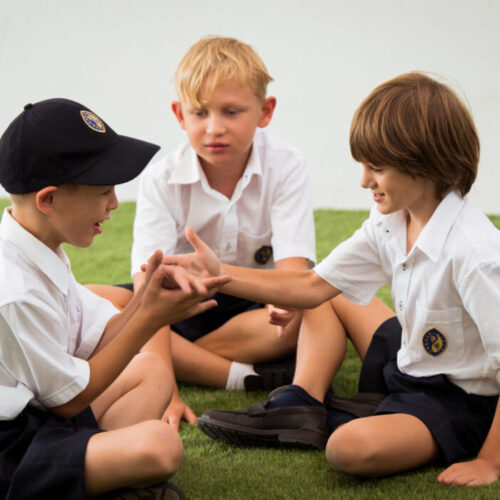Why active learning matters

In the ever-evolving landscape of education, most parents are usually on the look-out for new ways to enrich their child’s learning experience. Active learning could be the way forward.
One concept that has gained momentum in recent years is active learning – but what exactly does that phrase mean and how could it benefit your little one’s academic journey?
What is active learning?
Active learning is more than just a teaching methodology; it’s a philosophy grounded in the belief that children learn best when they are actively engaged in the learning process. Unlike traditional education, where students absorb information through lectures or rote memorisation, active learning encourages more engagement, personal participation and analysis, to reach a deeper understanding and better retention of new knowledge.
Advantages
At its core, active learning is about fostering curiosity and a genuine love of learning, two major advantages to have when it comes to school success. By engaging with material, kids become active participants in their own learning, rather than passive recipients of information. This not only enhances their comprehension and their ability to recall things later, but it also cultivates essential skills like communication, collaboration and critical thinking – skills that are invaluable both inside and outside the classroom. Here’s how active learning can benefit your child at school:
Involvement
Active learning transforms the learning experience into a dynamic and interactive journey. Whether conducting science experiments, debating a topic in a group, or participating in role-playing activities, children are more involved in the process of learning new ideas.
Greater understanding
Little ones develop a wider understanding of ideas through hands-on experiences and real-world applications that help abstract concepts come to life, making learning more tangible and relatable for young minds.
Analytical abilities
Active learning cultivates critical thinking skills by encouraging children to analyse, evaluate and synthesise information independently. Rather than passively absorbing facts, they learn to question, explore alternative perspectives and think rationally about the world around them.
Collaboration
This philosophy gives children more opportunities to learn from their peers and share their ideas in a supportive environment. During group projects, debates and discussions, kids develop their interpersonal skills, working on their communication, teamwork and conflict resolution. These are markers of future success in today’s interconnected world and will benefit your little one far beyond the four walls of the classroom.
What to do
As parents, there are many ways we can promote active learning in our children. A simple first step is to nurture curiosity at home by asking open-ended questions and encouraging discussions together. Secondly, it can be good to allow some hands-on exploration in your child’s down time, be it educational games or creative activities, like art or writing. Lastly, it’s easy to get wrapped up in grades, but it’s more helpful to praise effort, perseverance and resilience, rather than focusing solely on children’s academic outcomes. Interestingly, this actually creates a better learning environment at home, as kids feel empowered to take risks and make mistakes, ultimately embracing harder challenges with less fear.
Hopefully, this article will give you the tools to begin encouraging greater active learning in all aspects of your child’s life, setting them up for educational success!
Image Credit: Shutterstock











Comments